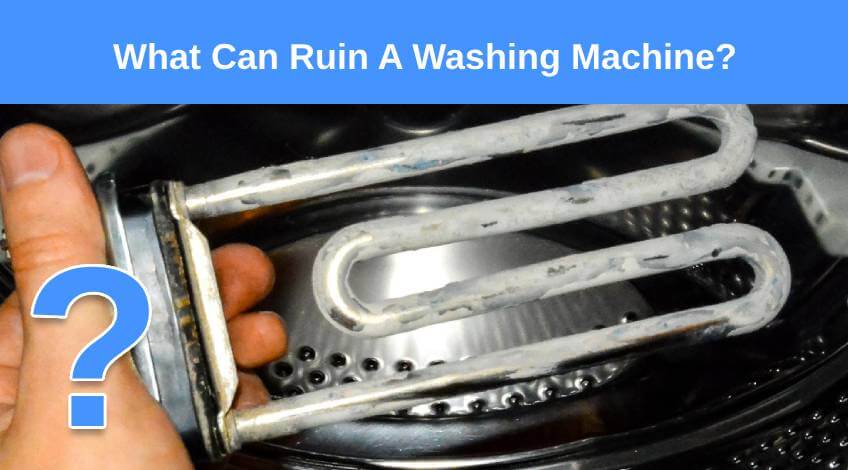
What Can Ruin A Washing Machine?
Washing machines are invaluable appliances in our everyday lives. They save us precious time that can be better spent on work, relaxation, or quality time with our loved ones.
So, when something goes wrong with your washer, it can be a major inconvenience. But what if there were ways to prevent your washing machine from getting damaged in the first place?
In this article, we will look into the common culprits that can ruin a washing machine and give you some tips on how to avoid them!
What Causes Your Washing Machine To Get Damaged?
There are several things and habits that can lead to the damage of your washing machine.
Let’s learn more about these potential washing machine wreckers and see how to keep your trusty appliance in tip-top shape.
Not Reading The User Manual
Washing machines come with a user manual for a reason. This little booklet contains essential information on how to use, maintain, and troubleshoot your machine. From load capacity to ideal water temperatures, detergent types, and laundry programs, it’s all there.
Failing to read these instructions can easily lead to wear and tear, reducing your machine’s efficiency and potentially causing damage that could lead to costly repairs or even a replacement.
Not Sitting Your Washing Machine Level
Balance is key when it comes to a machine with a drum that whirls and twirls to clean your laundry. Placing your washing machine on an uneven surface can lead to that annoying rattling sound and excessive vibrations during the spin cycle. If your washing machine moves significantly while working, it’s a sure sign that it’s not level.

Using a platform or adjusting the machine’s legs can correct this issue. Neglecting to do this can lead to damage to the internal components of your washer, costly repairs, and even damage to your flooring.
Overloading Your Washing Machine
We get it; the temptation to stuff as many clothes as possible into a single load is there. However, this temptation can easily lead to a disaster. Overloading your machine is a surefire way to shorten its lifespan and lead to premature failure.
Every washing machine has a recommended load capacity, but it’s advisable not to push it to the maximum. The golden rule is to use only 1/2 to 3/4 of your machine’s capacity for optimal efficiency. This ensures effective cleaning without compromising your machine or clothing.
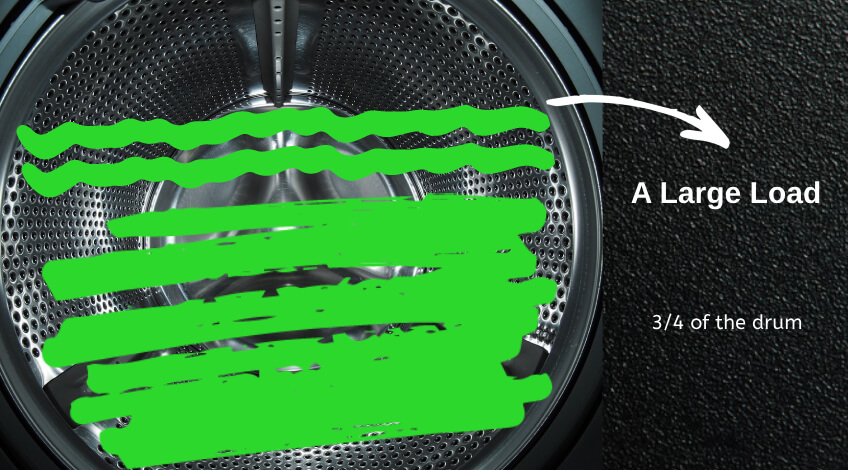
For example, if you have an 8KG washer, limit your load to around 4-6 KGs for effective and gentle cleaning.
SEE ALSO: How Much Should You Fill A Washing Machine? (easy guide)
Underloading Your Washing Machine
While overloading is a common mistake, underloading your machine is equally harmful.
As mentioned earlier, your washing machine needs to use at least half its capacity to function optimally. Going below this minimum can strain the machine, as it has to work harder to maintain balance, resulting in premature wear and tear.
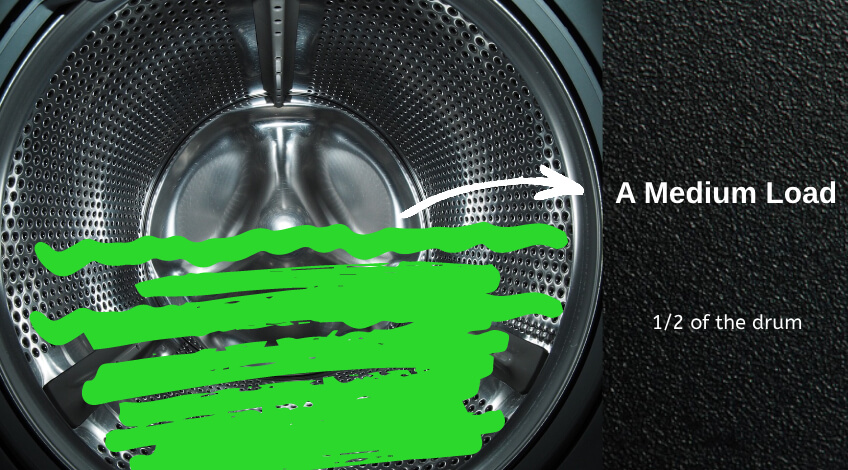
Wait until you have enough laundry to fill at least half your washer’s drum for the best results, and you’ll save on energy too.
Using Too Much Detergent
When it comes to detergent, more isn’t necessarily better. In fact, overloading your machine with excessive detergent can do more harm than good.
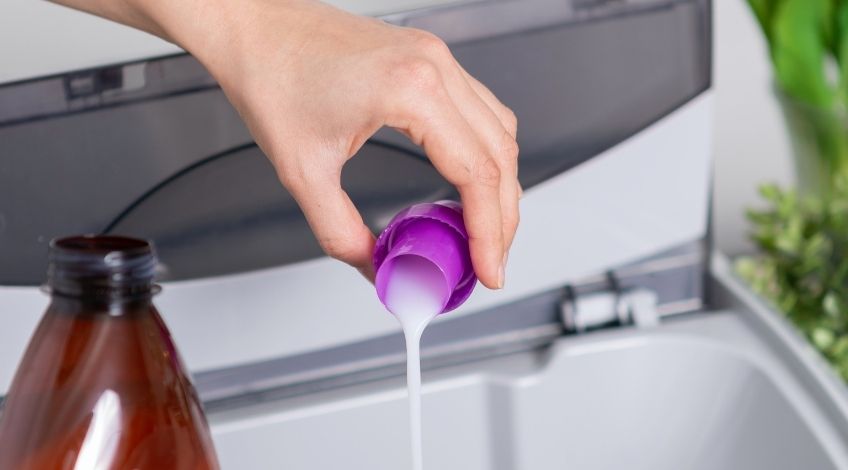
Using too much detergent generates excessive foam, which can clog the drainage hose and harden, which can prevent proper water drainage. Over time, this can affect the washing machine’s performance.
Using Harsh Chemicals In Your Washing Machine
Your washing machine is no place for harsh chemicals. Some solvents and bleach can be detrimental to both your clothes and the machine’s internal parts. Always opt for mild detergents and avoid using substances that can cause corrosion and peeling.
WARNING: Harsh chemicals can also come from your laundry items, such as stains from motor oil, petrol, and cooking oil. Pre-treat these fabrics and use stain removers before washing to prevent damage to your machine.
- Stain remover for clothes: HG’s Laundry Pre-Treat Stain Removing Spray Extra Strong is strengthened with active oxygen to remove even the worst stains from nearly all types of fabric
- Pre wash stain removing treatment: Tackles ink, wine, armpit sweat stains, deodorant marks, suntan lotion stains, tea, coffee, fruit juice, chocolate, gravy, spinach, grass and mud spots
Putting Hairy Clothing In The Washer
If you have furry pets or long hair, be aware that hair can accumulate in your washer.
Before tossing your clothes into the machine, use a lint roller or give them a quick shake to remove excess hair. Accumulated fur and hair can clog the drain and lint filter, affecting your machine’s performance and causing potential problems down the line.
- Package contains 1 handle and 1 roller.
- Our sticky roller features a strong and durable adhesive that guarantees efficient and residue-free lint removal
Not Checking Your Clothes’ Pockets
It’s easy to forget to check your pockets, and that can lead to trouble. Coins, keys, and other objects can scratch the machine’s drum and get snagged on clothing, potentially causing damage.
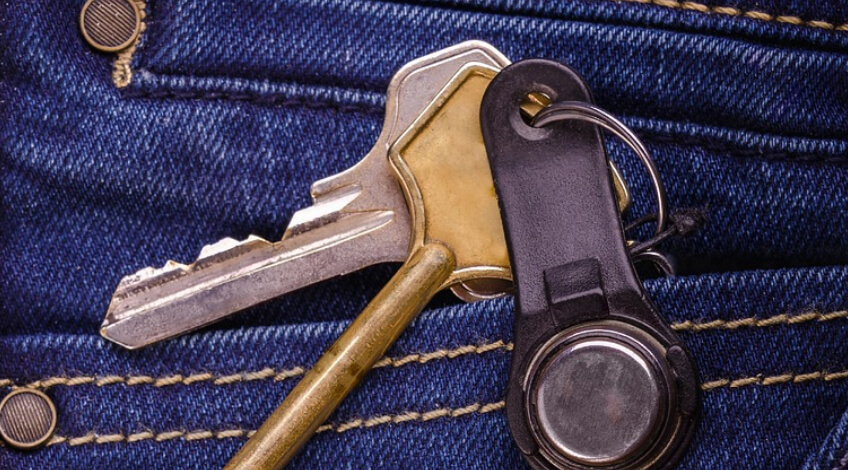
Even something as simple as tissues can disintegrate and create lint, which can clog your machine.
Make a habit of checking pockets before each laundry load to avoid these issues.
Not Securing Delicate Or Embellished Clothes
Clothing with sequins, buttons, straps, and zippers can be problematic for both your fabrics and washing machine.
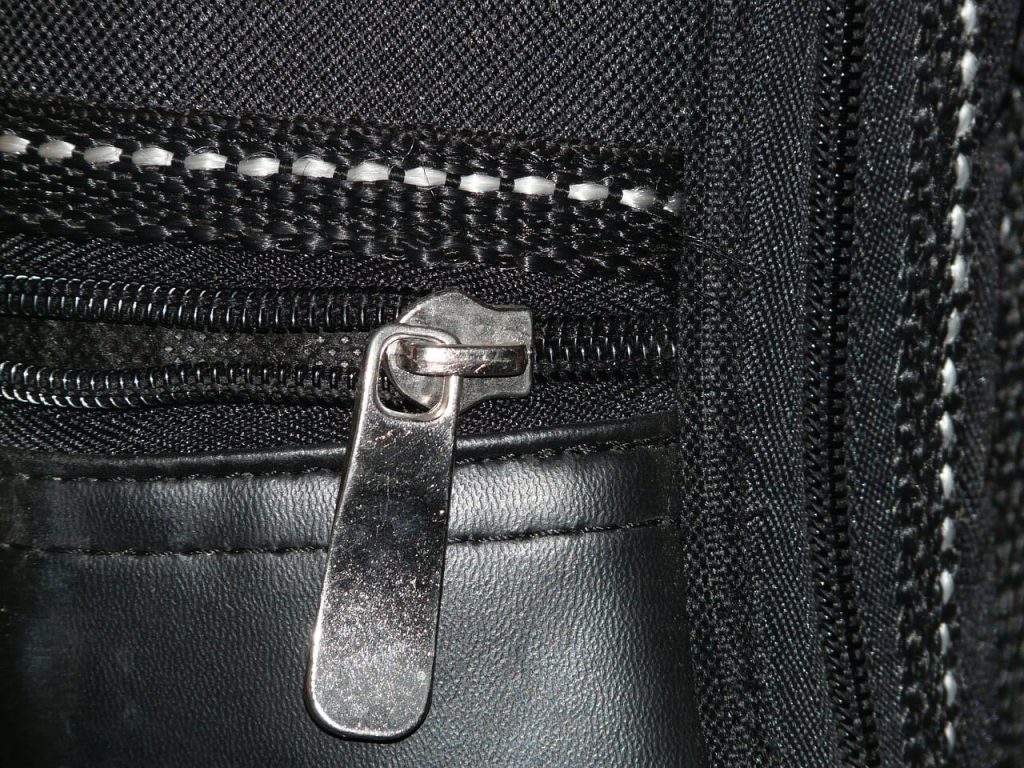
To protect your washer, keep such items in a mesh bag. For clothes with zippers and buttons, flip them inside out before washing to prevent damage to the machine and your clothing.
SEE ALSO: What Clothes Are Considered “Delicate Clothes”?
Putting Hard Or Sharp Items In The Drum
Hard items like shoes and sharp items such as clothing with metal spikes can be detrimental to both your clothing and the washing machine’s drum. After all, they can lead to physical damage to both the fabrics and the machine.
Additionally, placing heavy items in the drum can cause imbalance during the spin cycle, which should be avoided at all costs.
Forgetting To Remove Laundry From The Washing Machine
Leaving damp laundry in the drum can create a damp, musty environment, ideal for mould and mildew growth!

Make it a habit to promptly remove your laundry to prevent odours, damage to clothes, and machine issues!
Ignoring Strange Noises From Your Washing Machine
While some noise during the washing cycle is normal, screeching or banging sounds are not. This is because those loud noises could indicate a significant problem.
Check where the noises are coming from; as you might have left a coin or key in your clothes. If nothing’s found, consult a repair specialist before the issue worsens and becomes more expensive to fix.
Not Cleaning Your Machine Regularly
Regular cleaning is a must to extend your washing machine’s lifespan! This is because of the fact that hair, mould, soap scum, and other debris can build up over time.
Make sure to clean your machine’s drum, detergent and fabric softener drawer, and lint filters regularly.
Don’t forget to clean the exterior as well, using mild detergents and avoiding harsh chemicals. Refer to your machine’s user manual for specific cleaning instructions.
Make Your Washing Machine Last!
By following these tips, you can extend the life of your washing machine and keep it running efficiently, saving both your appliance and your wallet in the long run.
Remember, a little care goes a long way in maintaining your trusty washing machine!
Do you have any questions? Feel free to ask below!
Frequently Asked Questions
Yes, keys can potentially damage a washing machine if left in the drum during a wash cycle. They can scratch the drum and cause other issues.
Washing machines can break due to various factors, such as overloading, unbalanced loads, using too much detergent, or neglecting maintenance.
You can tell your washing machine is damaged if it makes unusual noises, leaks water, fails to complete cycles, or shows error codes. These are signs of potential issues.
The most common parts to fail in a washing machine are the motor, belts, water inlet valves, and bearings. These components often experience wear and tear.
A washing machine typically lasts around 10-13 years, but this can vary depending on usage, maintenance, and the quality of the appliance.






